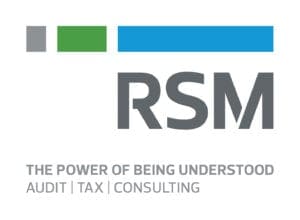Selecting an investor: Key considerations for startups
The process of seeking out, selecting and vetting potential investors can seem overwhelming for leadership teams at nascent tech startups. There are so many factors to consider — from an investor’s financial motivations to whether their values align with your company’s values — that it can be hard to know where to begin.
Research is one of the best tools to help with this process, but not just in terms of learning about individual investors. Members of your executive team should develop an understanding of capital flows and all the components of the tech investment ecosystem. Resources such as the Harvard Business Review and PitchBook can help your team dive deeper into how tech industry investment works on a macro and micro level.
Joining a local tech incubator community can also help with building foundational knowledge of the investment landscape. Most cities have incubators or similar tech communities that support startups by helping people build new relationships in the industry. Deepening your network can help your team find answers to critical questions, including how to navigate different types of capital and investment options.
Once your team feels confident in understanding the tech investment landscape, you are ready to begin having conversations with potential investors. You may wish to hire an experienced advisor to support this process, but here are some additional considerations that will help you make the right decision.
Vision
To start, ensure your strategy, goals and overall vision for your company align with those of the potential investors. Do not be afraid to ask questions. A clear understanding of their goals is important before you further the conversation. Ensure milestones, including operational and financial objectives, are clearly understood and agreed to ahead of time.
It is also good practice to walk through a few scenarios. For example, ask how they would offer support if your company experienced a growth delay or unexpected business disruption. Ask them about their investment history and seek out specific stories about how they have worked with other companies in the past. You might even want to reach out to those other companies to ask their leadership team for insights about the potential investor. All of this will help you understand how they operate and make it easier to determine if their strategy aligns with yours.
Financial alignment
It is key to fully understand a potential investor’s financial goals. If it is a venture capital or private equity firm, understand the fund structure. Who are their limited partners and what is their investment timeline? Are they a feeder fund or do they operate independently? Financial motivations vary significantly from one investor to the next. Their motivations will materially impact the approach and support they provide throughout their investment. It is essential that you understand these details in order to ensure you and your investor are aligned on your goals.
Value
Beyond financial considerations, how will an investor help you? There is an abundance of capital in the industry today, but a shortage of good opportunities. Put another way, it is a seller’s market. As a business owner, this gives you the opportunity to be selective when choosing an investor. The investor should bring strategic value to your business. Your team should carefully consider which quantitative and qualitative gaps at your company a potential investor might help fill. Often, strategic value is more vital than financial capital. It is arguably one of the most important considerations when selecting the right investor.
Final thoughts
Selecting the right investor is a weighty decision that will have long-term implications on the growth of your business. As an entrepreneur, your time is limited and likely being consumed by other more urgent matters. However, before you accept the first term sheet that looks good on paper, take time to educate yourself and think critically about the key points listed above. It’s a good idea to hire a seasoned advisor to help with this process. Focus on the strategic considerations and select the investor who maximizes the future value of your business, not just the one who presents the biggest cheque.
Produced in partnership with:
By David Stuart and Justin Krieger
If you’re interested in advisory support from RSM, learn more here.


